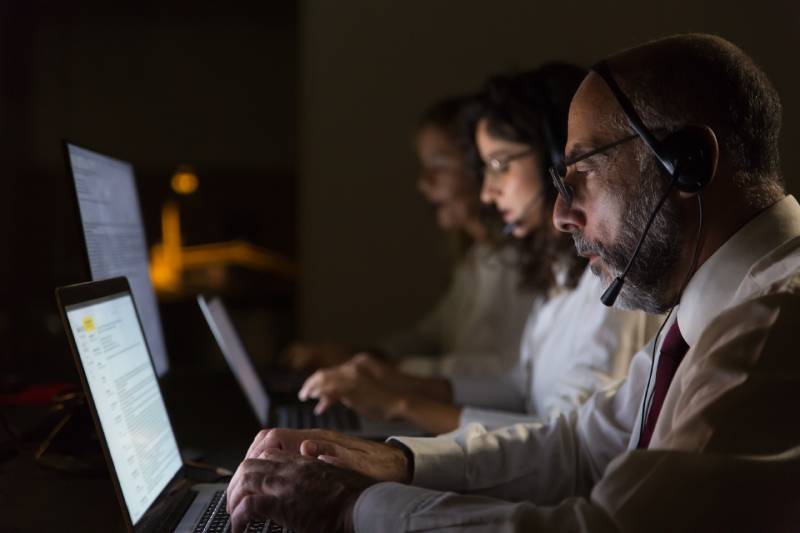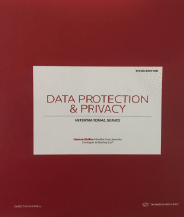Long due modernization to the administrative litigation procedure in Colombia, law 2080 of 2021

By: María del Pilar Duplat M. – Peña Mancero Abogados
Through Law 2080 of 2021 the National Congress approved the modification of the Code of Administrative Procedure and Contentious-Administrative Matters (CPACA) in Colombia, to include new developments in the use of digital and technological resources and other long-due changes, hereunder we make a brief summary of the main modifications:
- Right of Petition
People may submit petitions in any way, i.e. verbally, in writing, or through any technological or electronic means available in the public entity or embedded within the “unified Access mechanisms to the public administration”, and without the need of doing it through an attorney. Furthermore, the petitions made through electronic mechanisms shall not demand a previous registration before said entity.
- Electronic Mechanisms for the administrative procedure
- People may identify themselves before the authorities through digital authentication mechanisms.
- When authorities enable digital channels to communicate between each other, they shall use these means to develop their functions.
- People may also use the digital channels enabled by the public/administrative authorities to interact with them.
- Implementation of the electronic file: The electronic file is the set of electronic documents that correspond to an administrative procedure. The electronic file shall guarantee the authenticity, integrity and availability of the documents.
- Electronic notification: Authorities may notify their acts through electronic means, provided that the subject has authorized it. In any case, the subject may at any moment request that the subsequent notifications are not made electronically, but through other mechanisms.
- Electronic Office: The electronic office is the official electronic address of the entity. Said office shall contain all legal, organizational and technical measures that guarantee the quality, security, availability, accessibility, neutrality and interoperability of the information and the services pursuant to the standards established by the National Government.
Said electronic office shall be shared with the Unique Portal of the Colombian State, to which people may have access to the contents, procedures, services and formalities available by the public authorities.
Furthermore, there shall be an electronic registration of documents and shall have data systems with sufficient capacity and have the adequate digital security measures.
- Extension of case-law of the State Council
Authorities shall extend the effects of the unification judgments issued by the State Council where a right has been recognized to whoever requests and proves that it is under the same factual and legal situation than the one in the unification judgment. To do so, the subject interested in the extension of the case-law of the State Council shall:
- File a request before the corresponding authority to acknowledge the right.
- The legal claim must not have precluded.
- Contain a justification where it proves that the petitioner is in the same factual and legal situation in the case-law whose effects it seeks to extend to its particular case.
- Provide the evidence that it wishes to submit in the procedure.
- Make reference to the unification judgment from the State Council effects it seeks to extend.
- Expert Evidence
The parties to an administrative litigation process may submit or request to the judge to order a specific expert evidence in the way provided by the CPACA. If there is a recusal or an impediment of the expert, the Judge shall decide it immediately and without further discussion through a procedural decision which shall be final.
The Expert shall take possession of its position and shall give an oath pursuant to the law, and if the party who requested or that provided the expert evidence does not deposit the sums ordered by the judge to pay the travel expenses and the ones derived from the rendering of the expertise, it will be understood that the party waived the evidence.
The Parties shall have a term of 15 business days to submit their arguments against the expert’s opinion or to request a complementation or addition, once the expert’s opinion has been completed or added the other party shall have a term of 10 business days to submit its arguments against these new issues on the opinion.
Finally, two new special rules were created:
- Public entities may choose the experts who shall give their opinion in a judicial process through a direct procurement procedure.
- When a public entity is the one issuing the expert opinion, the judge shall order the payments of the fees to this entity.
- Administrative Litigation Procedure
All labor, pension and other matters which are not by nature negotiable matters, may be settled out-of-court, unless it is expressly forbidden by the law.
In declaratory procedures, the plaintiff may withdraw the law-suit provided that no precautionary measures/injunctive relief have been notified or performed. On the other hand, the plaintiff in an executive procedure may withdraw the suit even if precautionary measures/injunctive relief have been carried out.
Furthermore, parties may submit additional evidence in the appeals procedure, when they were decreed but not carried out in the first instance proceedings or when they have been refused in the first instance of the procedure.
Appeals and appeals for reconsideration are no longer available to challenge a sanction for non-compliance with a precautionary measure or injunctive relief, only a reconsideration request (recurso de reposición in Spanish) may be submitted before the judge who issued the decision.
- Anticipated Judgment
Pursuant to article 42 of Law 2080 of 2021, the Judge may issue an anticipated judgment, i.e. before the initial hearing, in the following cases:
- In merely legal cases
- When no evidence needs to be examined.
- There is only documental evidence submitted with the suit and/or the reply to the suit, provided that there is no claim of falsehood against the documents or allegations of lack of knowledge therein.
- When the requested evidence is not related to the claims, irrelevant or useless.
Nevertheless, in any of the aforementioned cases, the judge may decide in any case to carry out the initial hearing, if it considers it appropriate.
To sum up hereunder you will find a graphic with the main amendments to the CPACA:
| Right of Petition | Electronic Mechanisms for the administrative procedure | Extension of case-law of the State Council | Expert Evidence | Administrative Litigation Procedure | Anticipated Judgment |
| Petitions may be submitted in any way, and through electronic mechanisms | The Administrative Procedure may be carried out through electronic or digital mechanisms and have access to the case files electronically. | If a subject considers that it is under the same factual and legal situation than the one in a unification judgment of the State Council it can request the extension of this case-law. | The expert evidence shall be considered waived the Parties do not deposit the fees and expenses of the experts in the established term.
The Parties shall have a term of 15 business days to submit the arguments against an expert’s opinion or to request its clarification, complementation or addition. |
All labor, pension and other matters which are not by nature negotiable matters, may be settled out-of-court, unless it is expressly forbidden by the law | The Judge may issue an anticipated judgment before the initial hearing when there is no evidence to be examined or discussed or in merely legal cases |
If you have further inquiries about the modifications to the administrative litigation procedure introduced by Law 2080 of 2021, do not hesitate to contact our team of experts at: info@pmabogados.co

New regulations on SAGRILAFT and PTEE for foreign non-profit organizations and chambers of commerce – Superintendency of Companies

Data Protection & Privacy



